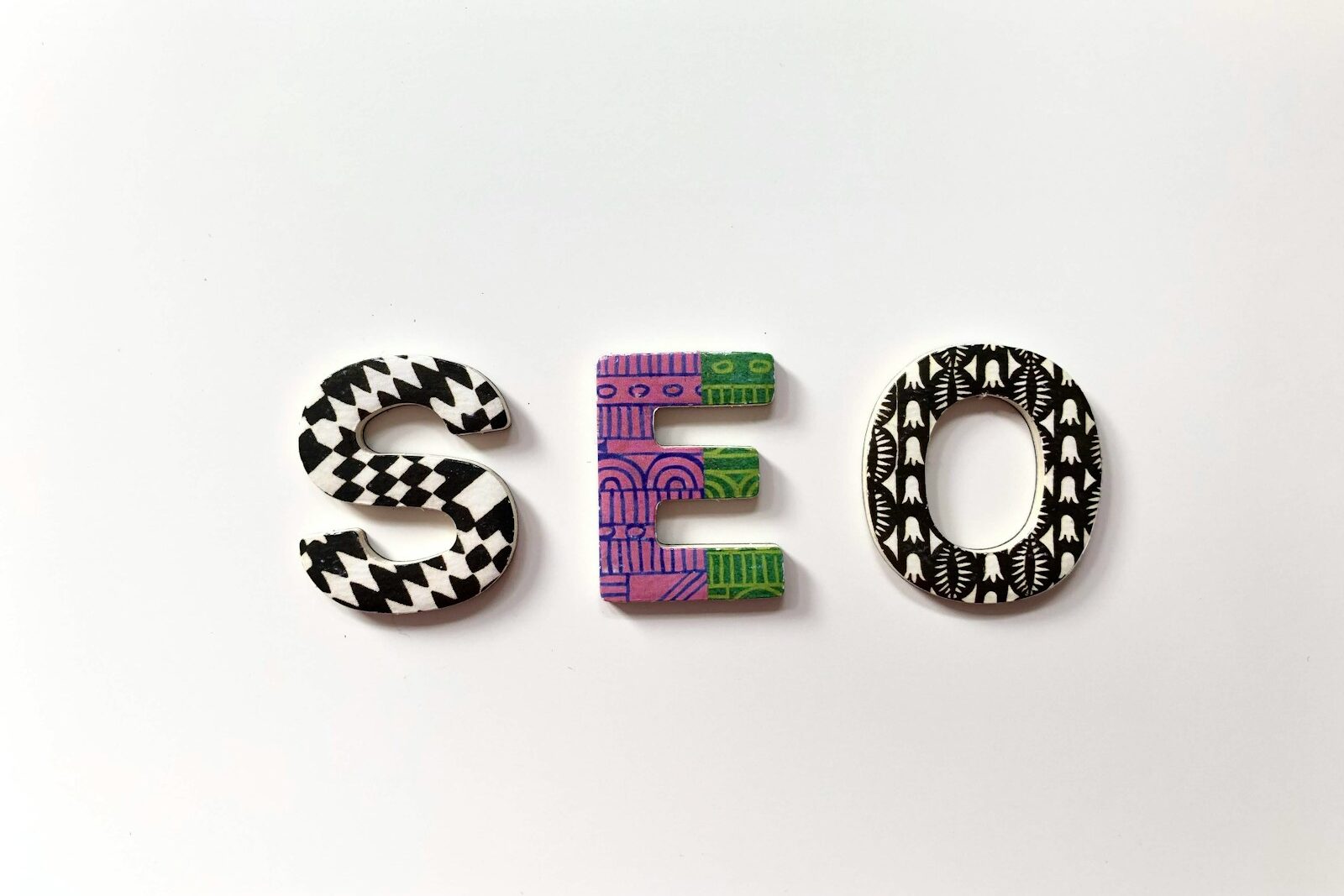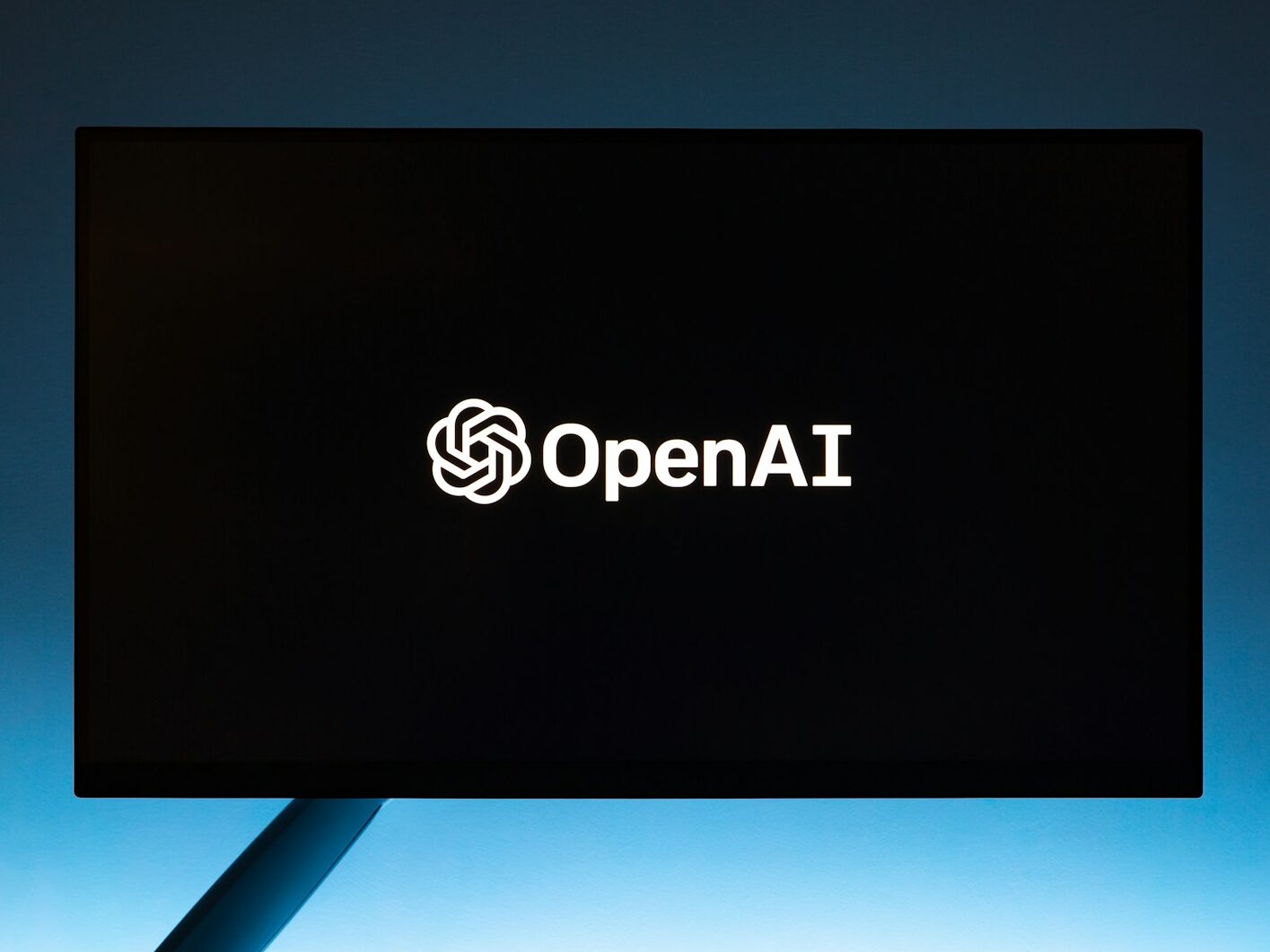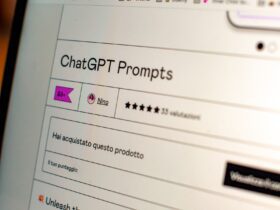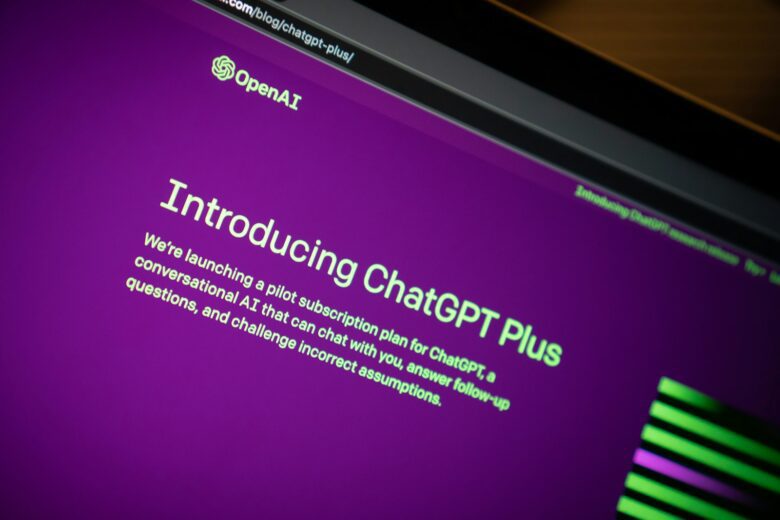In an age where technology is continuously advancing, the field of artificial intelligence has witnessed remarkable breakthroughs. One such advancement that has caught the attention of content creators and marketers alike is OpenAI’s ChatGPT model. Armed with an extensive knowledge base and language generation capabilities, ChatGPT is revolutionizing the way we generate content.


At its core, ChatGPT is a powerful tool that leverages deep learning algorithms to comprehend human inputs and provide highly relevant responses. This AI-powered chatbot can engage in conversation with users, simulating real-time interactions. But what truly sets it apart from other chatbots is its ability to generate contextually appropriate text based on the given prompts.
Now you might be wondering: How does this advanced language model apply to my SEO efforts? The answer lies in one simple fact – quality content reigns supreme when it comes to optimizing search engine rankings. And that’s exactly where ChatGPT shines brightest. By harnessing the power of AI-generated insights, creators are able to produce informative, engaging, and enticing articles that appeal not just to readers but also search engines’ algorithms.
But enough about theory! In this article, we’ll delve into practical applications and explore 10 effective ChatGPT prompts specifically designed for boosting your SEO strategies. From keyword research assistance and topic suggestions to crafting meta descriptions and improving user experience through personalized recommendations – our list covers it all! So stay tuned as we unravel how leveraging this cutting-edge technology can catapult your website’s visibility to new heights while captivating your target audience along the way.
Importance of Incorporating AI into SEO Strategy
Artificial intelligence (AI) has emerged as a game-changer in various industries, and when it comes to Search Engine Optimization (SEO), incorporating AI can bring significant advantages. One such powerful tool is OpenAI’s ChatGPT, which harnesses the capabilities of natural language processing and machine learning to generate high-quality content that resonates with search engines.
One key benefit of leveraging AI like ChatGPT in your SEO strategy is the ability to optimize keyword research. Traditionally, SEO professionals would spend countless hours researching keywords manually and analyzing their competitiveness. With ChatGPT, you can now speed up this process by generating a wide range of relevant keywords in an instant. This enables you to identify untapped long-tail keywords or discover new variations that can help you target niche audiences effectively.
Furthermore, ChatGPT empowers content creators with its ability to provide topic suggestions based on user prompts and guide them through content ideation processes. By tapping into the vast knowledge base at its disposal, ChatGPT offers fresh perspectives and innovative ideas that may have otherwise been overlooked. This ensures that your content remains engaging and insightful not just for readers but also for search engine algorithms that prioritize valuable information.
Integrating AI technology like ChatGPT into your SEO strategy allows you to stay ahead in the dynamic digital landscape by automating time-consuming tasks while delivering quality results. It enhances organic traffic potential by optimizing keyword research and enabling unique content creation processes guided by artificial intelligence insights. Embracing this powerful combination gives you an edge over competitors who are yet to embark on this transformative journey towards more effective search rankings.
Identifying User Intent
Understanding user intent is crucial for effective SEO strategies. By using specific prompt variations on customer queries, content creators can gain valuable insights into the intent behind search queries. This allows them to tailor their content and optimize it for better search engine rankings.
One way to identify user intent is by analyzing long-tail keywords. These are more specific and often indicate that the user has a clear purpose or question in mind. For example, if a user searches for best running shoes for flat feet, they are likely looking for recommendations or advice tailored to their specific needs. Content creators can use this information to create targeted content that addresses the user’s query directly.
Another method of identifying user intent is by analyzing the language used in search queries. Words like how to, guide, or top tips suggest that users are seeking informational content or step-by-step instructions. On the other hand, terms like buy, discount, or reviews indicate transactional intent, where users are ready to make a purchase decision.
By understanding user intent through careful analysis of prompts and keywords, content creators can provide relevant and useful information that aligns with what users are searching for. This not only improves SEO outcomes but also enhances overall user experience on websites and increases conversion rates.
Incorporating AI-generated responses from ChatGPT based on these identified intents can further enhance the effectiveness of content creation efforts, as it provides personalized answers and suggestions aligned with different stages of the buyer’s journey. This approach not only helps improve search rankings but also establishes credibility and trustworthiness within target audiences when presenting well-researched solutions addressing their concerns effectively.
Optimizing Meta Tags with GPT-3 Generated Titles: Enhancing Click-Through Rates through Data-driven Refinements


In the ever-evolving landscape of search engine optimization (SEO), one crucial aspect that content creators and marketers are constantly seeking to improve is the click-through rate (CTR). A higher CTR not only drives more organic traffic to a website but also signals its relevance to search engines, thus boosting its rankings. While there are multiple strategies for improving CTRs, leveraging AI-generated content using OpenAI’s ChatGPT model has emerged as an innovative approach.
One particular area where GPT models like ChatGPT can be immensely helpful in optimizing SEO efforts is refining meta tags with generated titles. Meta tags play a vital role in providing concise yet informative descriptions of web pages on search engine result pages (SERPs). By incorporating suggested headlines or meta tags generated by GPT-3, content creators can tap into data gathered from previous visitor behavior and refine their meta tags accordingly.
Utilizing AI-generated titles for meta tags presents an opportunity to experiment with different approaches based on metrics such as engagement rates, bounce rates, and time spent on page. The dynamic nature of AI models allows for continuous refinement and improvement over time as user feedback shapes subsequent iterations. These refined meta tags then have the potential to entice visitors by effectively conveying what awaits them upon clicking through to the website.
By exploring accurate refinements based on data collected from previous visitor behavior, content creators can align their page titles with users’ expectations better than ever before. Optimized meta tag descriptions that accurately represent the contents of a webpage not only enhance SEO visibility but also maximize click-through rates – ultimately driving more qualified traffic and increasing overall conversions. With GPT-3-generated titles, businesses can take advantage of cutting-edge technology while delivering value-driven experiences tailored specifically to their target audience’s preferences
Generating Long-Tail Keyword Suggestions
One of the key benefits of using ChatGPT for SEO is its ability to generate long-tail keyword suggestions. By interacting with the chatbot and providing specific triggers, content creators can uncover valuable keyword opportunities that may have been overlooked. Traditional keyword research tools often provide a limited range of keywords based on predetermined criteria, but with AI assistance, marketers can access a broader spectrum of long-tail keywords that are relevant to their target audience.
When employing ChatGPT to generate long-tail keyword suggestions, it’s important to frame the prompts effectively. Instead of asking generic questions like What are some long-tail keywords related to ‘digital marketing’?, applying context-specific information yields more accurate and valuable results. For instance, asking What are some lesser-known digital marketing strategies? or How can small businesses leverage digital marketing efficiently? can prompt the chatbot to provide unique and niche-focused long-tail keyword ideas.
By utilizing AI-generated suggestions in combination with traditional keyword research techniques, content creators have an opportunity to explore new topic areas and expand their reach within the search engine results pages (SERPs). These long-tail keywords often have lower competition and higher intent from users, making them ideal for driving targeted organic traffic. Leveraging chatbots like ChatGPT enhances SEO efforts by unlocking hidden potential in generating highly relevant long-tail keywords that align with user intent and interests.
Crafting structured FAQs based on Common User Queries
One effective way to improve organic visibility and enhance SEO efforts is by crafting structured FAQs that address common user queries related to the products or services offered. This approach not only provides valuable information to users but also helps search engines understand and categorize the content better, leading to higher rankings.
Automated response generators, such as ChatGPT, can play a significant role in this process. These AI-powered tools analyze common user queries and generate comprehensive answers that can be used for FAQ sections on websites. By leveraging this technology, businesses can save time and effort in manually creating responses for each query.
Moreover, implementing well-structured FAQs has an additional advantage – they are more likely to appear as rich snippets in Google’s search results. Rich snippets are interactive boxes displayed at the top of search results that directly provide answers to user queries. By featuring these snippets, businesses can significantly increase their organic visibility and attract more traffic to their website.
Crafting structured FAQs based on common user queries using automated response generators like ChatGPT can greatly benefit SEO efforts. Not only do they provide valuable information to users, but they also improve the chances of appearing as rich snippets in search engine results pages. By addressing user queries effectively through well-crafted FAQs, businesses can enhance their online presence and attract relevant organic traffic.
Creating Blog Post Topics with High Search Volume and Low Competition
When it comes to creating blog post topics, one of the key challenges is finding a sweet spot between search volume and competition. You want to focus on topics that have high search volume, which means there are more people searching for those keywords or phrases. At the same time, you also want to consider the level of competition for those topics because if the competition is too high, it can be difficult for your blog posts to rank well in search engine results.
This is where AI-powered algorithms can come in handy. By leveraging advanced technology like ChatGPT, content creators can tap into a wealth of data and insights that would be nearly impossible to gather manually. ChatGPT has access to vast amounts of information from various sources across the internet, enabling it to identify niche topics that strike a balance between search volume and competitiveness.
By using AI-powered algorithms, you can discover untapped opportunities and uncover hidden gems within your industry. These niche topics may not have massive search volumes like broad terms but targeting them allows you to cater to a specific audience segment that is actively looking for information related to these topics. This approach can result in higher engagement rates as your content will likely resonate more deeply with this targeted audience.
Incorporating AI-generated content through tools like ChatGPT gives content creators an edge when it comes to identifying blog post topics with high search volume and low competition. The advanced algorithms behind these platforms enable them to sift through vast amounts of data quickly and provide valuable insights into niche ideas worth exploring. By leveraging AI technology in this way, content creators can optimize their SEO strategies by focusing on relevant subjects that both drive traffic and position their blogs ahead of competitors.
Generating Content Outlines for SEO-Friendly Articles
One of the key challenges in creating SEO-friendly articles is developing a well-structured and organized content outline that effectively incorporates relevant subheadings, keyword placements, and maintains semantic coherence. This is where leveraging ChatGPT prompts can be immensely beneficial. By using OpenAI’s ChatGPT model, content creators can generate creative and diverse prompts that serve as valuable starting points for outlining their articles.
ChatGPT provides an opportunity to brainstorm different subtopics related to the main theme, allowing for a comprehensive coverage of the subject matter. For instance, if we consider an article about Digital Marketing Strategies, generating a ChatGPT prompt like Discuss effective digital marketing channels can help in identifying subheadings such as social media marketing, email marketing, search engine optimization (SEO), pay-per-click advertising (PPC), and so on.
Keywords play a crucial role in optimizing web content for search engines. With ChatGPT’s ability to suggest keywords based on its training data and context provided by users’ input prompts, it becomes easier to identify pertinent keywords at various sections within the article outline. Incorporating relevant keywords strategically throughout the content helps search engines understand what your article is all about and improves its chances of ranking higher on SERPs.
Moreover, structuring content outlines with the assistance of ChatGPT promotes semantic coherence within the article. The model aids in generating prompt-specific questions or statements that narrow down each subtopic while maintaining logical connections between them. This ensures smooth transitions between paragraphs and enhances overall readability.
In essence, utilizing ChatGPT prompts enables the efficient generation of well-organized content outlines that encompass essential subheadings, and strategic keyword placements, and maintain semantic coherence – ultimately improving website rankings by aligning with proven SEO best practices
Improving Readability and User Experience through AI-generated Suggestions
In the digital age, where competition for users’ attention is fierce, readability and user experience play a crucial role in determining the success of your content. Fortunately, with AI-powered tools like ChatGPT, you can take your writing to new heights by refining language, style, and tone to enhance readability and engagement factors while improving overall user experience.
One way that ChatGPT excels in helping improve readability is by suggesting simpler alternatives for complex words or phrases. This ensures that even readers who aren’t experts in the subject matter can easily grasp the message you’re trying to convey. For instance, instead of using terms like elucidate or incorporate, AI-generated suggestions might prompt you to replace them with more accessible alternatives like explain or include. By simplifying your content’s vocabulary, you break down barriers for readers and make it easier for them to connect with your material.
Additionally, ChatGPT can assist in fine-tuning writing styles based on reader preferences. Experimenting with different tones – conversational, authoritative, friendly – allows you to find the voice that resonates most effectively with your target audience. The model prompts writers beyond generic sentences by offering innovative ways to engage users. It suggests creative hooks at the beginning of paragraphs or catchy headings that grab attention instantly. By incorporating these suggestions into their work through high-level editing processes facilitated by ChatGPT recommendations, content creators have a higher chance of capturing readers’ interest right from the start.
10 Best ChatGPT Prompts for SEO Marketers
| Prompt Number | ChatGPT Prompt to Improve SEO | Suggestions and Tips |
|---|---|---|
| 1 | “How to Optimize SEO Using ChatGPT” | – Utilize ChatGPT to generate keyword-rich content |
| 2 | “Improving Website Ranking with ChatGPT” | – Incorporate long-tail keywords suggested by ChatGPT |
| 3 | “Enhancing SEO Strategy with ChatGPT” | – Use ChatGPT to create engaging meta descriptions |
| 4 | “Maximizing SEO Impact through ChatGPT” | – Leverage ChatGPT for creating SEO-friendly blog posts |
| 5 | “Boosting SEO Performance using ChatGPT” | – Generate high-quality, relevant content with ChatGPT |
| 6 | “ChatGPT Techniques for SEO Optimization” | – Implement ChatGPT for creating SEO-optimized landing pages |
| 7 | “Leveraging ChatGPT for Improved SEO” | – Use ChatGPT to craft compelling title tags for SEO |
| 8 | “Strategies for Enhancing SEO with ChatGPT” | – Experiment with ChatGPT to create unique meta titles |
| 9 | “ChatGPT Best Practices for SEO Success” | – Integrate AI-generated content from ChatGPT into SEO strategy |
| 10 | “Innovative Ways to Use ChatGPT for SEO Improvement” | – Consider using ChatGPT to generate diverse content types for SEO |
Conclusion
In summary, leveraging AI technology such as ChatGPT can significantly enhance both the readability and user experience aspects of your content pieces. Providing simplified alternatives for complex terminology and assisting in shaping appealing writing styles tailored to specific target audiences’ preferences further contributes towards engaging users effectively from introduction to conclusion – all leading towards an enriched reading experience across various digital platforms.
OpenAI’s ChatGPT provides a powerful toolset that unlocks endless possibilities for enhancing SEO efforts. These ten strategies highlight the versatile applications of this technology in generating high-quality content that resonates with both search engines and users alike. Embracing these techniques will undoubtedly give you a competitive edge in today’s digital landscape where relevance is key. So go ahead; experiment with these prompts and elevate your SEO game to new heights!





























